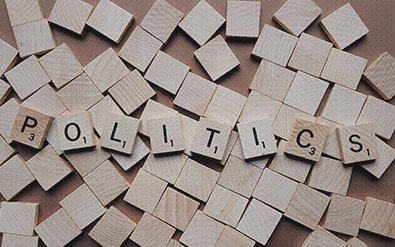Share This
By Jon Lavietes, Senior Associate
Unless you’ve succeeded in living completely off the grid — eschewing any contact with social media networks, shutting your eyes to news feeds, avoiding politics in every in-person conversation you’ve held this millennium and basically walking around with plugs permanently in your ears — you probably know that these are very polarizing times when it comes to everything and anything political.
People on both sides of the aisle and all parts of the ideological spectrum don’t just believe in their views passionately, they often think opposing positions — and the people and organizations that proffer them — are evil. Opposing viewpoints don’t just spawn disagreement, they’re fodder for rage!
When it comes to politics, I’ve mostly assumed a general-interest brand should do its best to stay out of the fray, lest it wants half of the country foaming-at-the-mouth angry at it. Then a few months ago, Nike launched its 30th anniversary Just Do It campaign featuring former NFL quarterback Colin Kaepernick, who in the previous two years drew exuberant praise from civil rights activists and equally vociferous scorn from veterans and other conservative groups for taking a knee in protest of racial inequities and police brutality, urging folks to “believe in something, even if it means sacrificing everything.”
The campaign predictably garnered tremendous acclaim from the left, while setting off protests and boycotts of Nike in right-leaning circles. And yet, a funny thing happened. Nike saw “record engagement with the brand” in the days following the launch, and its calculated risk has paid off in terms of revenue generation months later. Will we now see more brands taking such bold stands, especially since millennials seem to want them to have a larger purpose? Like the political issues themselves, the answer to that question is more complex than the public discourse might suggest.
Know your customer
In Nike’s case, it just so happened that its core consumers — 18 to 29-year old males, many of whom live in urban areas — were galvanized by Kaepernick’s message. In other words, the people organizing the protests against Nike aren’t ordinarily buying as many swoosh-adorned pairs of sneakers as the people inspired by the campaign anyway. By contrast, if you’re a country music band and you take an antiwar stance, you’re likely to experience the opposite effect on your marketability, as the Dixie Chicks found out in 2003 after one of its members criticized President George W. Bush and the Iraq war, generating a backlash that would mar the band’s career for years.
Similarly, Chick-fil-A revenues rose 14 percent in 2012, the same year its president sparked protests with his stance against gay marriage. Granted, unlike Nike’s campaign, these views came solely from the founder’s son and were never officially endorsed by the company. Still, whether it was because Chick-fil-A’s customers were motivated by or indifferent to the comments, or they simply can’t turn down a good chicken sandwich, the controversy didn’t adversely affect the company’s bottom line.
Is polarization sustainable?
For all of Nike’s initial success, it remains to be seen if the company will encounter obstacles down the road. After all, as the face of its Jordan Brand subsidiary allegedly once said, “Republicans buy shoes, too.” (Although truth be told, there’s good reason to doubt that Michael Jordan actually uttered these words). If the company ever saturates its young, urban and international markets, these millions of red-state voters could suddenly end up being a key new-growth market segment.
Nike might be betting that memories are short, and that the anger in those put off by the Kaepernick campaign won’t persist years or maybe even months from now. Or, perhaps a targeted product line (camouflage sneakers, anyone?) or a strategic partnership with a respected veterans organization, such as the Veterans Association of America or the VA, will successfully smooth things over? It’s worth noting that in recent years Chick-fil-A carefully re-crafted its messaging and developed a new apolitical mission statement before successfully expanding into New York, Portland, Seattle and Maine. There’s no reason Nike couldn’t do something similar in Rust and Sun Belt states.
For now, people on both sides of the Kaepernick debate are fired up. And after seeing the effect Kaepernick’s Just Do It campaign has had on Nike’s revenues, I imagine the company’s finance department is, too.



